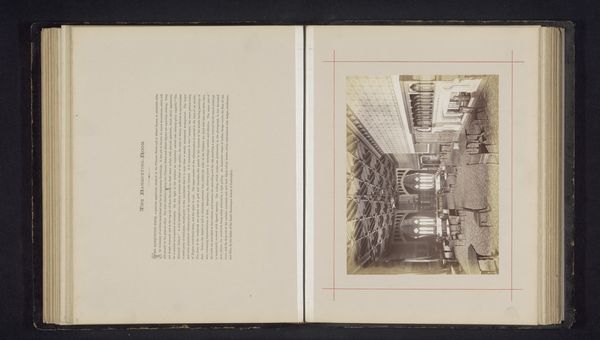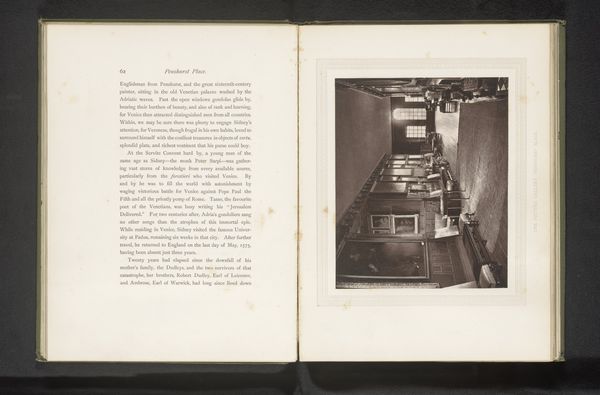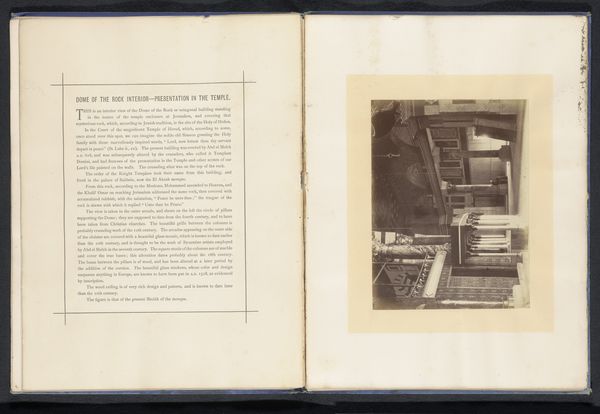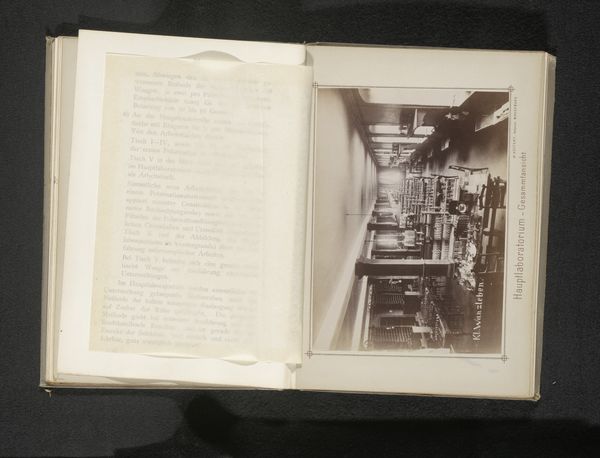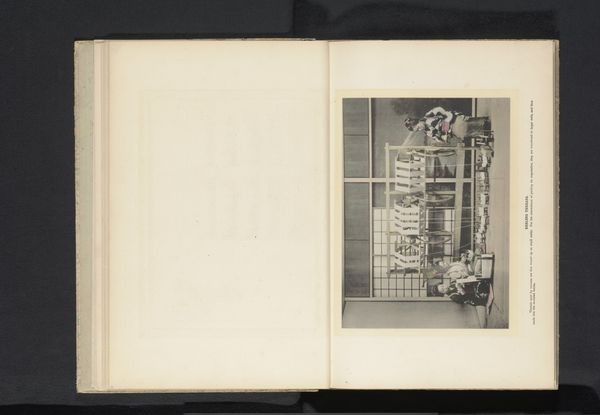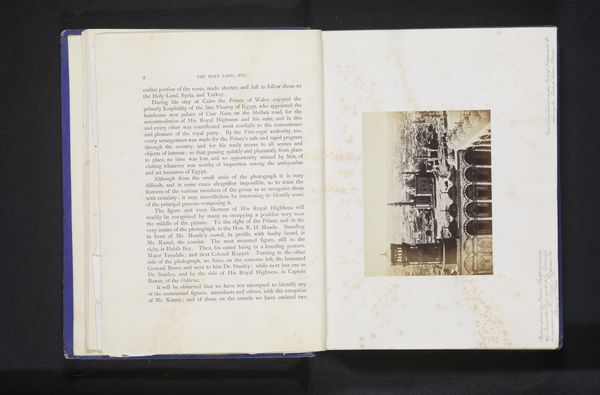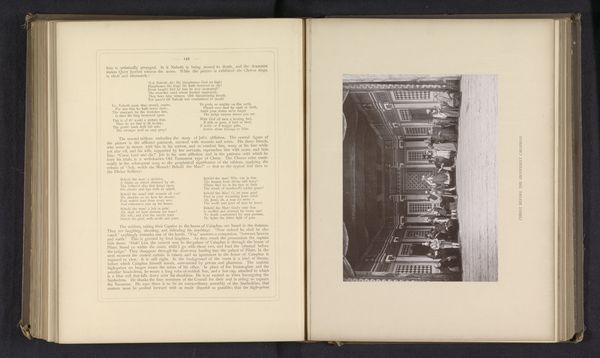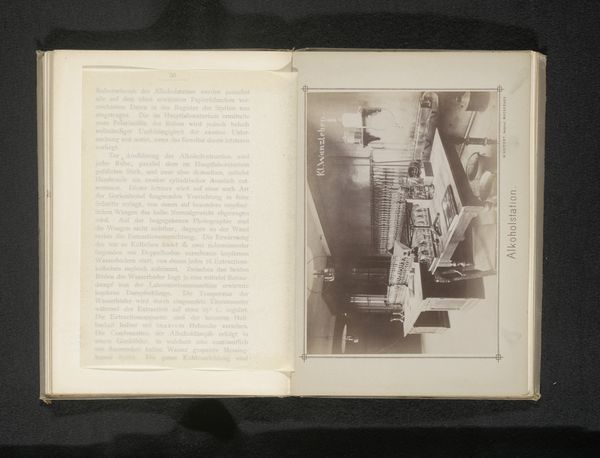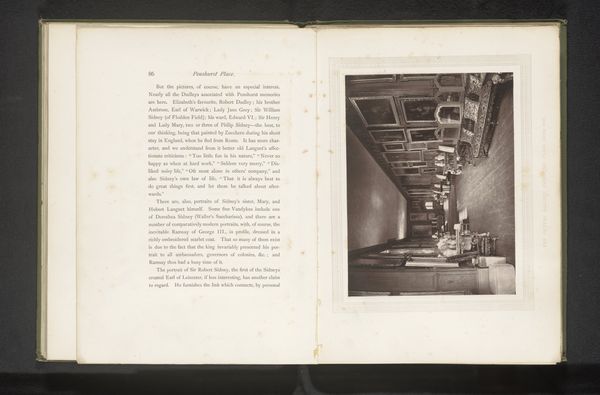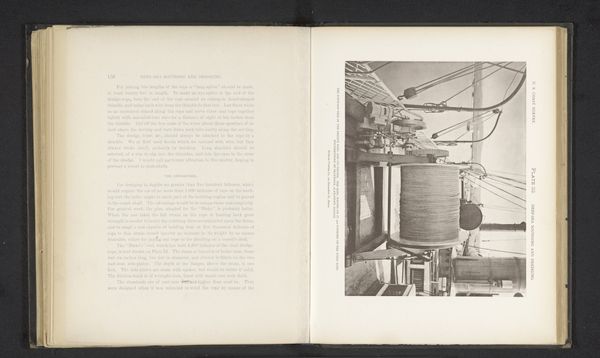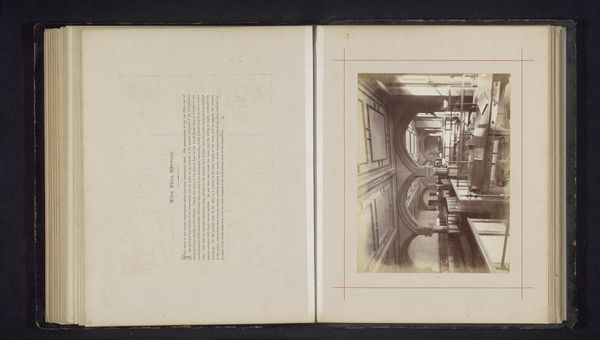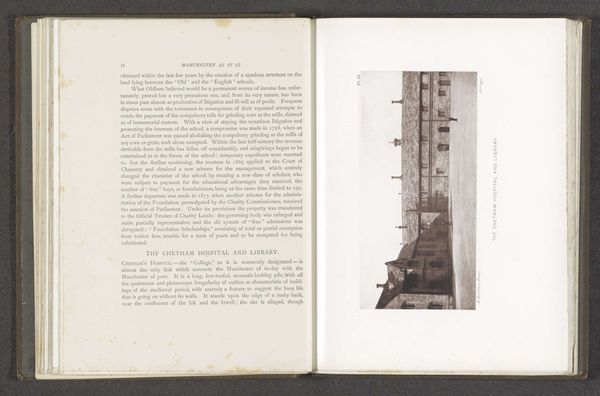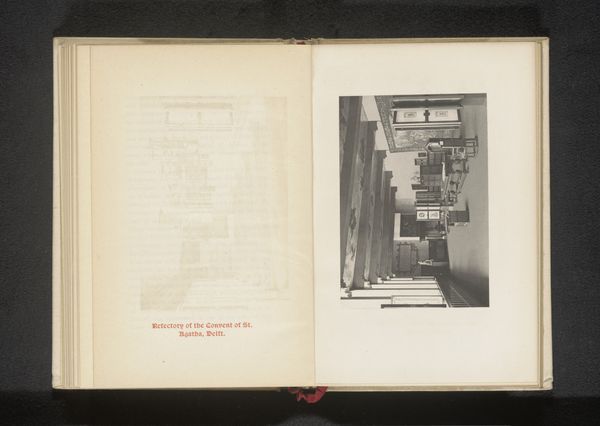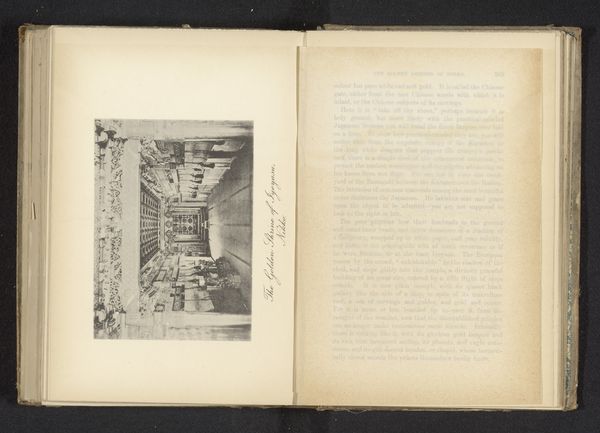
Interieur van een kiemstation van de suikerfabriek te Klein Wanzleben before 1894
0:00
0:00
print, photography
#
still-life-photography
# print
#
landscape
#
photography
#
modernism
#
realism
Dimensions: height 103 mm, width 143 mm
Copyright: Rijks Museum: Open Domain
This photograph, taken by Wilhelm Höffert, captures the interior of a sugar factory’s germination station. Rows of meticulously arranged seeds present a stark visual of industrial precision and controlled growth. The ordered rows of seeds evoke the symbolism of the grid, a pattern found across cultures from ancient city planning to modern art. Grids symbolize control, order, and the imposition of structure onto the natural world. Reflect on the Babylonian map of the world, an early attempt to give structure to the unknown, where the world is presented as a disc divided by neat lines. In Höffert’s photograph, the grid is a manifestation of humanity's attempt to harness nature for its purposes. There is a psychological tension between the desire for control, represented by the grid, and the organic unpredictability of growth itself. We are drawn to find the connection between the image, memory, and our deeper understanding of nature. This tension reminds us that symbols are not static; they evolve through history, reflecting society's changing relationship with the world.
Comments
No comments
Be the first to comment and join the conversation on the ultimate creative platform.
